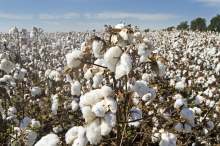Research from Friends of the Earth found that clothes washing in the UK is estimated to generate around 4,000 tonnes of plastic microfibre pollution every year, of which 1,600 tonnes could be ending up in our rivers and estuaries. One washing load of clothes could be shedding up to 17 million tiny plastic fibres.
The call for the fashion industry to act on plastic pollution coincided with a new survey, showing that most people aren’t aware that much of our clothing is plastic-based. A Friends of the Earth-commissioned YouGov poll found that only 45% of the public know that new clothing can often be made from, or contain, plastic.
As much as two-thirds of UK clothing could be made from synthetic plastic material, such as polyester, acrylic or polyamide.
Friends of the Earth plastics campaigner Emma Priestland lamented:
“The fashion industry is a major contributor to plastic pollution, shedding tonnes of tiny plastic microfibres into our oceans via our washing machines every year. These fibres are so small that they pass through water treatment facilities and end up in the food chain when they are swallowed by small creatures in our seas. The industry must help stop this tsunami of plastic pollution.”
FoE is urging the public to embrace slow fashion by choosing fewer, more durable clothing items made from sustainable material, which can be kept longer. It is also urging the clothing industry to take steps to reduce its contribution to the plastic pollution entering our oceans.
Priestland added: “For many materials, recycling is a useful way of preventing pollution – but not for plastic. It just delays the inevitable escape of pollutants into the environment. Ultimately, to end the plastic pollution crisis, we need government action to phase-out all but the most essential plastics.”





